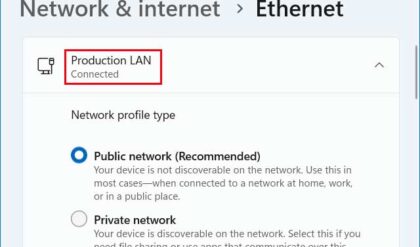It’s never been easier to access the Internet. And with that ease, there are some risks. The most significant of these is censorship, which can limit what you see and do on the Web. It also puts your personal information at risk by exposing it to cybercriminals who may be looking for ways to steal your identity or commit other crimes against you.
Fortunately, there is a solution: proxy servers. These servers act as intermediaries between you and the sites you visit, so they can bypass any filters in place and protect your privacy from hackers while still letting you access blocked websites. Proxy servers give users more control over their online experience than ever before – but how do they work? That’s what this guide is here to explain.
What Is a Proxy Server?
A proxy server acts as an intermediary between you and the rest of the Web. You can request any content through your browser, which then sends it along to the proxy server. The proxy server sends what you requested back to you; all requests are anonymous because it does not contain any identifying information about you. There are many proxy services available that you can use to browse the Internet in this manner. Finding a good one is not easy because they are not created equally.

A proxy can do many things, but most of them don’t include security measures to protect your privacy and anonymity online. Instead, find a product or service with a high level of encryption and no logs policy – this ensures all transactions between the user and the proxy are encrypted at all times, even from the proxy itself. In addition, proxies that use dedicated servers offer better performance than those using shared resources for several users at once.
How Does a Proxy Server Work?
The difference between proxying and traditional browsing is that when you access a page through a browser, your IP address and other identifying information are visible to anyone monitoring traffic on the Web. Through a proxy server, this information is kept private. Instead of sending requests directly to websites or services, users send them via an intermediary – hence “proxy” servers. When you make requests for any website or service, your request goes through the proxy instead of straight out onto the web where it can be monitored. The proxy receives these requests, alters them if necessary (probably by changing the IP address), and forwards them to their destination for you. The web server receives the request, but because it isn’t connected to you personally, it doesn’t know who is making the request.
The encrypted connection between you and your proxy is what protects your personal information from prying eyes. It also ensures that any websites you visit can’t track or monitor your activity on their site since traffic goes through them instead of directly to them. This gives users more control over what they do on the Internet than ever before.
How Safe Is a Proxy Server?
Proxy servers are one of several tools used to browse anonymously online. They hide information about their users during transactions by only displaying fake IP addresses – so-called “proxy IPs” – to the internet at large. However, proxies can’t protect you from malware, and they may only provide limited protection against website tracking or ad targeting. Ultimately, using them is a trade-off between convenience, privacy, and security: the more of your data you reveal to an intermediary, the less secure it will be.
While proxy servers are an excellent tool for protecting yourself online, there are some risks associated with their use. First of all, not all proxy services provide anonymity; many of them collect personal information about their users (and some may even sell that information to third parties). Depending on the proxy service you choose to use, this could put your personal information at risk.
In addition, proxy servers are often unreliable and difficult to configure correctly. You may have trouble getting them to work on your device. Any proxy service that requires a lot of configuration can also introduce problems to the rest of your network, by introducing weak spots in your protection plan or otherwise affecting how you normally use the Internet. Many users become frustrated with these complications and give up on proxies entirely. In contrast, some services offer groups for their users as an easy way to access information about their problem without relying on technical support from the company. This allows those users who rely heavily on proxy servers to enjoy their benefits without worrying about potential risks or hassles.






